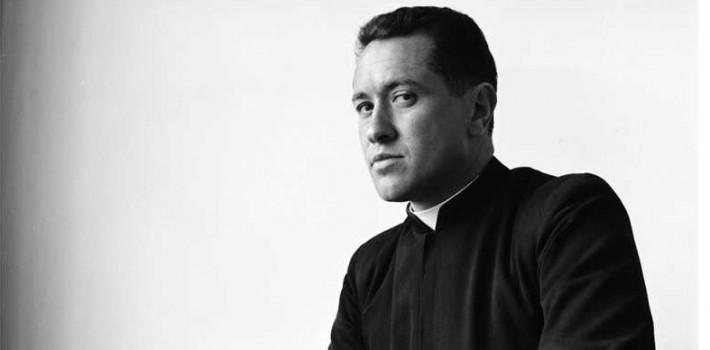
EspañolBy Luis Guillermo Vélez Álvarez
The commemoration of the death in combat of Camilo Torres Restrepo (1929-1966), a Catholic priest who became a communist guerrilla fighter, has caused much controversy in Colombia. Some leftist leaders such as Senator Iván Cepeda have celebrated Torres for his revolutionary struggle. Others lament his death as “a great loss for the social sciences”.
Such praises for Torres’s alleged intellectual achievements, however, arise from a yearning to provide academic legitimacy to the Colombian guerrilla movements, not from any serious analysis of his writings.
Torres studied at the Catholic University of Leuven, where he earned a Bachelors degree in the social sciences. His thesis was titled “Statistical Approach to Bogotá’s Socio-Economic Reality.” He aimed to obtain his doctoral degree, but failed.
He then sat in urban sociology and sociology of labor courses in Minneapolis. He made no formal studies in economics. In this field, in fact, his ideas did not go beyond the Marxist vulgate of exploitation and class struggle, as anyone who reviews his writings and proclamations can discover.
Torres thought that Colombian society was divided between a privileged minority — a caste formed by a few families which controlled everything since independence — and the vast, exploited majority. “As the Colombian peso is devalued every day,” that breed, also called oligarchy, had no other interest aside from getting their money out of the country “instead of investing in local jobs.”
If this minority had been willing, he supposed, it could have taken decisions “to favor all” by increasing the populations’ purchasing power. “In principle,” he wrote, “an increase in purchasing power increases demand, and an increase in demand can lead to an increase in the production.” But, Camilo reasoned, the oligarchy preferred to sell less at high prices than to sell more at low prices.
A revolution was therefore necessary to “take power away from the privileged minorities and hand it to the poor majority.” This was “the way to establish a government that would feed the hungry, dress the naked, teach the ignorant, make charity work…”
In economics, Camilo Torres’ ideas did not go beyond the Marxist vulgate of exploitation and class struggle.
This revolution — not only allowed, but mandatory for Christians — could be either peaceful or violent. Probably, if Camilo Torres had had a more refined knowledge of economic facts and processes, he would have understood that, in a country with a per capita GDP of USD $400, poverty the acts of goodwill of a provident and altruistic government do not eliminate poverty. But, like every fanatic, Camilo made his ignorance a virtue. Since the oligarchy resisted, there was no other option than violence, so he took up arms and headed to the mountains.
There is nothing worth rescuing in Camilo Torres’s writings. There is merely a plethora of clichés about exploiters and the exploited, Christian humanism, charity, and the love of one’s neighbor.
Torres, in fact, was no social scientist. He was nothing but an enlightened fanatic who was lucky to die at the beggining of his guerrilla journey. This prevented him from becoming another bloodthirsty murderer such as Manuel Pérez and Domingo Laín, the other violent priests who are remembered for their bloodthirsty militancy in the National Liberation Army (ELN).
Luis Guillermo Vélez Álvarez is an Colombian economist, professor at the EAFIT University of Colombia. Follow him @LuisGuillermoVl. This article, originally published in the author’s blog, is reproduced under his permission.
 Versión Español
Versión Español












